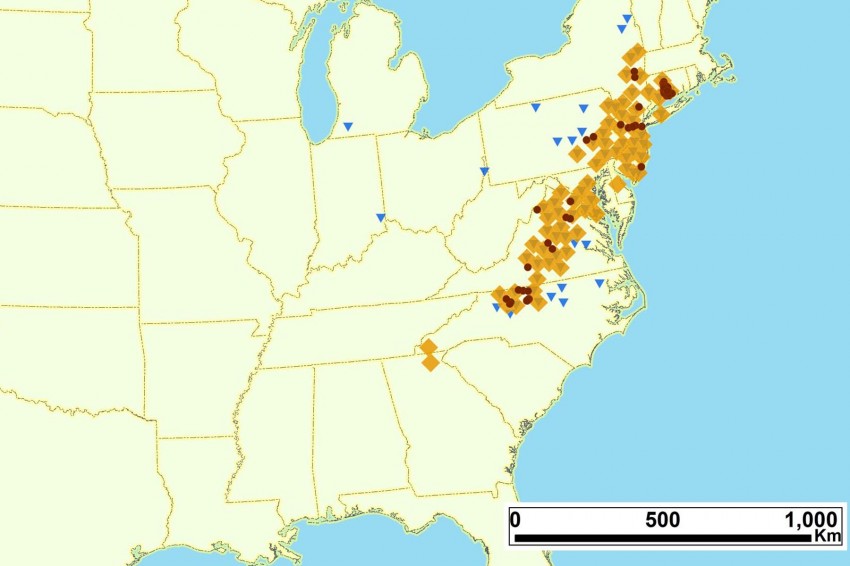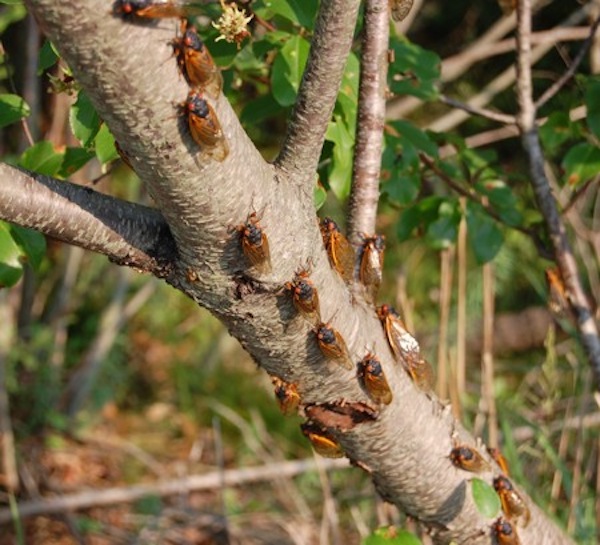Massachusetts May Be Spared the Sexy Cicada Invasion
How’s this for terrifying but true? After 17 years living underground, billions of red-eyed bugs, a swarm of cicadas known to scientists as Brood II, are about to emerge all along the east coast, get down and dirty for a few weeks, then die. But hey, how’s this for good news? Massachusetts might be spared from the swarm. (We’ve got swarms aplenty these days.)
As the Associated Press reported Monday, the cicadas of Brood II are set to emerge any day now, whenever the ground temperature reaches 64 degrees. Various cicadas come out on different cycles and in different years, but Brood II is one of the largest. This shouldn’t actually terrify you. The bugs aren’t harmful, and though they might outnumber us 600 to 1, those of us who don’t live near a large concentration of them may never notice. “They’re looking for just one thing: sex. And they’ve been waiting quite a long time,” writes The AP’s Seth Borenstein. (This has to be the sexiest story on the entomology beat in decades.) These particular cicadas, a type of magicicada that exists only on the east coast, come out once every 17 years to mate. So where can you find them? Check out this map of previous Brood II cicada sightings:

Blue is from 1923. Gold is 1988, and brown are confirmed sightings, usually since 1979. (Care of Magicicada.org.)
Notice how they seem to stop at the southern and western border to Massachusetts? It’s curious. It could mean that for some reason, this brood doesn’t hang out in our fair state. But it might not. Gerry Bunker of masscic.org is an independent cicada researcher who works with academics to map various periodical cicada emergences. (He photographed the cicadas seen above in 2008 on the Cape.) He says the Brood II cicadas may not appear in Massachusetts simply because no one documented them during previous emergences. Or there could be some other cause, farmland or construction along the borders, that repels them. “I would really like to get a definite answer regarding why they are not there,” he says, “which makes the internet … a useful tool because, what with everybody being connected, it’ll be easier to get the word out to get people to go out and check out those areas.”
For a cicada researcher, their absence, if it’s real, might be kind of disappointing. But for the rest of us, there are some, well, minor benefits to having them far from places we settle. “The noise all the male cicadas make when they sing for sex can drown out your own thoughts, and maybe even rival a rock concert,” notes the AP. The cicadas die after several weeks, leaving their new offspring to burrow underground. Bunker adds that their dead bodies smell bad, though the decomposition also help plants grow. It’s a trade-off. But we know some bug-averse Massachusetts residents who are probably willing to forgo the fertile plants if it means avoiding the noisey swarm.


